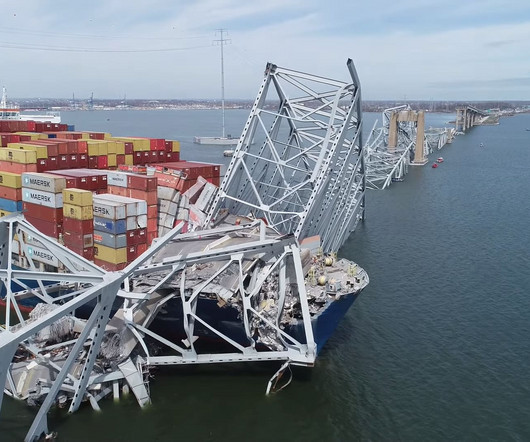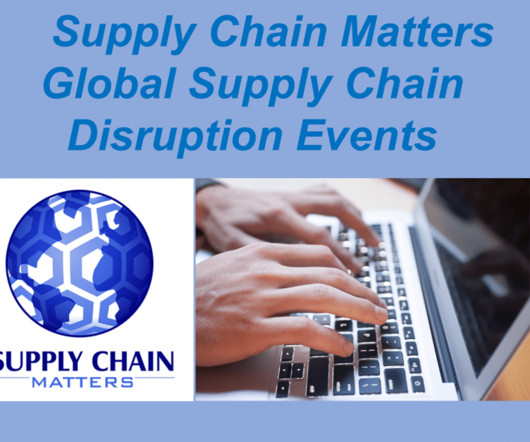Baltimore Bridge Collapse: An Opportunity to Reinforce the Importance of Supply Chain Resilience
Logistics Viewpoints
APRIL 10, 2024
The Francis Scott Key Bridge in Baltimore being struck by the Dali and collapsing is an unpredictable disruption to the supply chains of several industries including automobiles, coal, and agricultural machinery. The port handles about 11 million tons of cargo per year, including automobiles, containers, coal, and farm products.
















Let's personalize your content